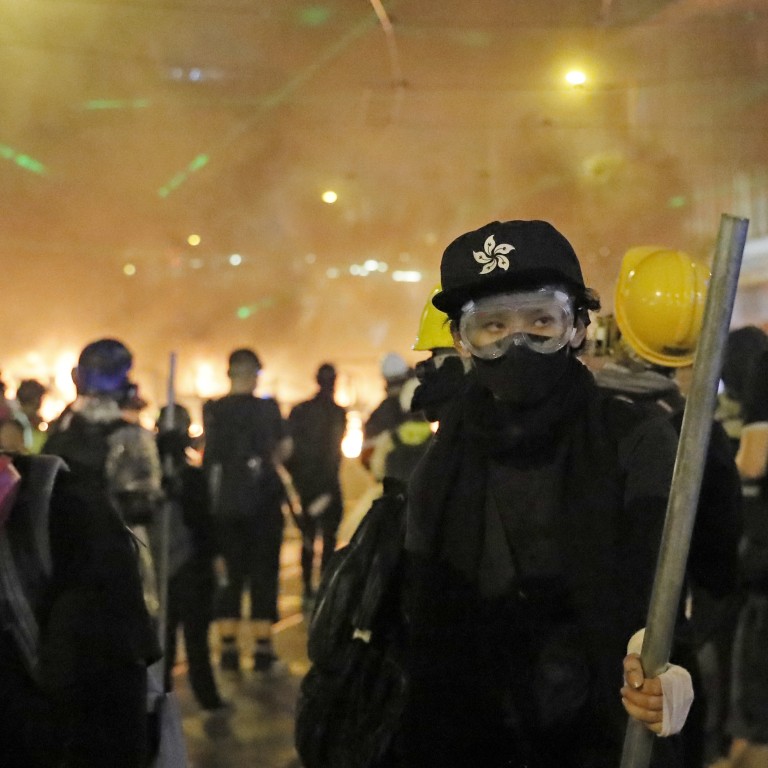
Singapore will not escape economic impact if Hong Kong unrest persists, trade minister Chan Chun Sing says
- Businesses heavily dependent on the protest-hit city will feel the pinch, Chan warns
- Investor confidence is likely to take a knock which will add to global economic uncertainty, minister says
Chan Chun Sing said close trade and investment ties between the two cities meant Singapore would likely be impacted by the anti-government protests in Hong Kong.
The southern Chinese city was Singapore’s fifth largest trading partner last year, Chan said, and its fourth largest investment destination at the end of 2017. Trade between the two accounted for an estimated 1.2 per cent of Singapore’s gross domestic product last year, according to the Lion City’s trade ministry.
Chan said his country’s economy had not yet been significantly affected by the tensions in Hong Kong, but businesses with a “strong dependence” on the city might see a greater impact.

“Some Singapore businesses with operations in the lifestyle and retail sectors in Hong Kong have been more directly affected,” Chan said.
Food and beverage giant BreadTalk Group, which comprises BreadTalk, Toast Box and Food Republic, said sales fell 20 to 40 per cent last month. Jenson Ong, chief executive officer for the company’s food atrium division, said the firm was monitoring the situation and would make “necessary adjustments”.
Global video gaming hardware manufacturer Razer, which has stores in Causeway Bay and Tsim Sha Tsui, also said it had been affected.
Women on the front lines of Hong Kong’s anti-government protests
Song Seng Wun, an economist at CIMB Private Banking, said Singapore retail businesses with operations in Hong Kong would have suffered in recent months from a slowdown in consumption.
Retail sales in the protest-hit city dived 11.4 per cent in July compared to the same period a year ago –the sixth consecutive month of declines.
“Singapore businesses are there to serve both the domestic market and those coming through the city,” Song said. “If people are not going through or their daily lives are being interrupted, then businesses’ bottom lines will be adversely affected.”
In the longer term, Singapore’s economy would feel the pinch, trade minister Chan warned.
“If the current situation in Hong Kong persists and adds to global economic uncertainty, investor confidence will likely be adversely affected,” he said.
“This will in turn weigh on investments and economic activities in the region. With increased uncertainty, the impact on Singapore’s economy is likely to be larger.”
Why Singaporeans don’t get the Hong Kong protests
Jeff Ng, chief economist for Asia at Continuum Economics, said even though only a small percentage of direct US-China trade passed through Hong Kong and Singapore, “any disruption will cause the supply chain to be diverted”.
“The protests have not really been at the trade-related ports, even though they reached the airport. If protests extended to seaports or strikes disrupting such sectors, there would be more concerns,” Ng said.
Companies would then shift their shipping routes to competing ports in the region, including Shenzhen and Shanghai, he warned.
“If the ships find it is better to trade from those areas instead of Hong Kong, then trade between Singapore and Hong Kong will be severely affected.”

